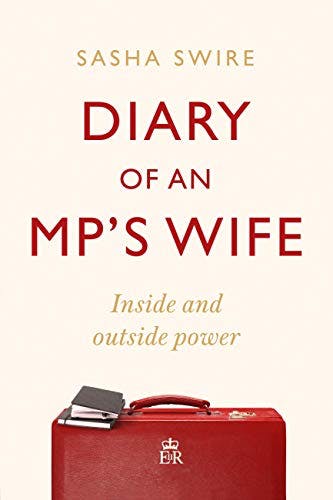In The Critic, Nigel Jones examines the soon-to-be-published “political tittle-tattle” of the wife of an MP and junior cabinet minister during David “Dave” Cameron’s premiership:
For anyone who has been holidaying under a rock for the past fortnight and may have missed the furore, I should explain that Lady Swire, daughter of Mrs Thatcher’s former Defence Secretary Sir John Nott, is the wife of ex-Tory MP Sir Hugo Swire, an Old Etonian chum of David Cameron, who somehow failed to be promoted beyond the ranks of junior ministers during his pal’s Premiership, but remained a close confidante and boon holiday companion to the PM. Lady Swire herself is half-Slovenian, and though brought up in the bosom of the Tory establishment, may not be entirely attuned to the evasions, hypocrisy and double standards that make up British political life, which makes her book all the more enjoyable.
Throughout Dave’s inglorious time in office, Lady Swire kept a secret diary detailing intimacies of conversation, banter and badinage, and revealing insights that give – shall we say – a not wholly flattering picture of the ruling Tory clique at play during their most unguarded moments. The bad behaviour, petty jealousies and embarrassing remarks of Dave, George, Boris and Michael and their wives are set down in all their toe-curling cringeworthiness.
The diaries are to be published next week but have been serialised in The Times and reviewed and widely commented on in the rest of the media. The two main targets – the duopoly of Cameron and Osborne – have already expressed their displeasure at the revelations. But all the tut-tutting disapproval of Lady Swire’s profitable indiscretions misses the main point: there is nothing that the British public relishes and enjoys more than an exposé of their leaders with their dignity gone and their metaphorical trousers down.
Moreover, gossip and tittle tattle as set down in diaries often tells us more about the true nature of politics and the motivations and personalities of politicians than a thousand self-serving pompous political memoirs or dull works of dry political analysis. What we really want is gossip – the gamier the better – and all the inconvenient truths our rulers rather we didn’t know.
Very often what we learn from particular epochs of history are the telling anecdotes and juicy titbits revealed by diarists rather than the respectability that the statesmen themselves wish to present and be remembered for. Our picture of the Restoration of the monarchy in 1660, for example, and the very merry court of Charles II, along with the apocalyptic disasters of fire and plague that followed comes largely from the indiscreet journals of Samuel Pepys, Daniel Defoe, and John Evelyn.




